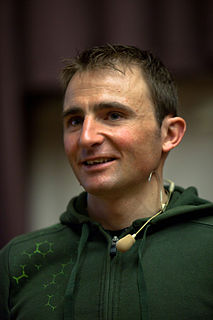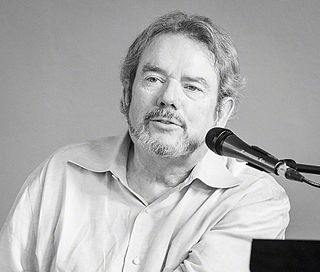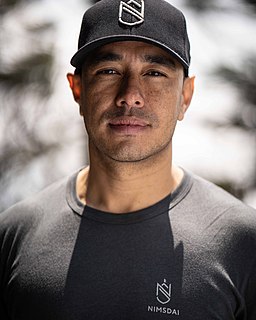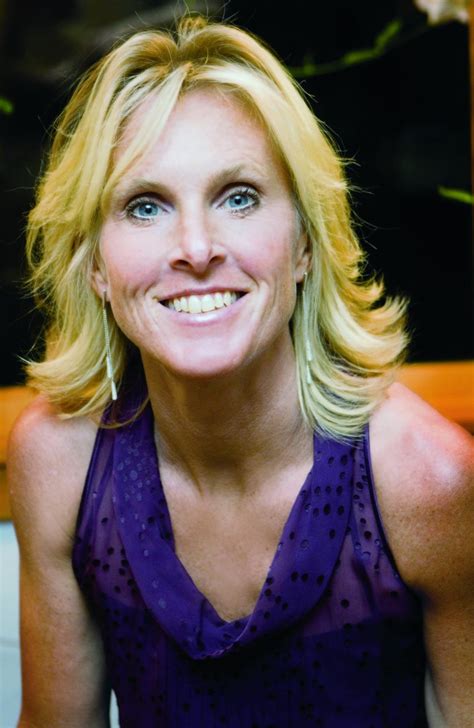A Quote by Yvon Chouinard
You can solo-climb Everest without using oxygen or you can pay guides and Sherpas to carry your loads, put ladders across crevasses, lay in 6,000 feet of fixed ropes, and have one Sherpa pulling you and another pushing you. ... The goal of climbing big, dangerous mountains should be to attain some sort of spiritual and personal growth, but this won't happen if you compromise away the entire process.
Related Quotes
Early on a difficult climb, especially a solo climb, you’re hyper-aware of the abyss pulling at your back, constantly feeling its call, its immense hunger. To resist takes tremendous conscious effort, you don’t dare let your guard down for an instant. The void puts you on edge, makes your movements tentative and clumsy. But as the climb continues, you grow accustomed to the exposure, you get used to rubbing shoulders with doom, you come to believe in the reliability of your hands and feet and head. You learn to trust your self-control.
Mountains should be climbed with as little effort as possible and without desire. The reality of your own nature should determine the speed. If you become restless, speed up. If you become winded, slow down. You climb the mountain in an equilibrium between restlessness and exhaustion. Then, when you're no longer thinking ahead, each footstep isn't just a means to an end but a unique event in itself. To live only for some future goal is shallow. It's the sides of the mountains which sustain life, not the top.
It has always been a goal of mine to climb Kilimanjaro, so that's definitely happening, and I may write a memoir about it. When I was 25, I tried to trek to Everest Base Camp, but I got sick and ended up being carried out of Dingboche on the back of my Sherpa. So Kilimanjaro would represent a redemption of sorts.































